Congolese government states holding elections may not be feasible this year
Last Friday, the head of the Democratic Republic of the Congo’s (DRC) national election commission announced that holding the presidential elections “will not be possible before December.” Congolese President Joseph Kabila, who has been in power since 2001, saw his presidential term end in December 2016 and has yet to step down. After political turmoil ensued last year, a deal was struck with the opposition, stating that Kabila will remain in power until elections can be successfully held. Still, discontentment and unrest continue to grow in the DRC as the ruling party has not made significant strides toward organizing and holding presidential elections. Last February, the Congolese budget minister cited a lack of financial resources as a reason behind the country’s inability to hold elections. Moreover, Kabila has stated that only the electoral commission can schedule elections once it has finished enrolling voters. (For an in-depth look at the political situation around the elections, see AGI Nonresident Senior Fellow’s three-part series.)
International authorities have threatened the DRC with punitive measures over this issue. This week U.S. Deputy Ambassador to the U.N. Michele Bison asked the Congolese electoral commission to set an election date and vowed U.S. sanctions on people “who stand in the way” of holding presidential elections. Moreover, in a letter sent to the Congolese government last month, Managing Director of the International Monetary Fund (IMF) Christine Lagarde strongly hinted that in order for the IMF to release emergency funds to address the country’s macroeconomic impasse, Kabila would need to set a timeline for his own departure from office. The country is in desperate need of cash to fuel its foreign exchange reserves. According to observers, the present level of forex reserves can only cover three weeks of imports.
Telecom giant Huawei partners with remittance service World Remit to massively expand international mobile money transfers to Africa
This week, Huawei, the world’s largest ICT provider, announced an expansion of its mobile money transfer services in Africa through a partnership with WorldRemit, an online company enabling people to send money abroad over a computer, tablet or smartphone. WorldRemit already processes 74 percent of all international transfers to mobile money accounts that are from money transfer operators and its revenues are already growing rapidly. As part of the deal, the companies will lower technical barriers between the operators in order to let Huawei subscribers turn on this service, improving access to mobile money remittances. According to Reuters, this partnership will allow WorldRemit to connect over 100 million mobile accounts on Huawei’s platform.
In 2016, total remittances to Africa amounted to $33 billion. However, Africa is the most expensive region in the world to which to send remittances. Business Insider reports that, compared to the world average 7.5 percent remittance sending fee, Africans pay 9.8 percent. These fees can be damaging: According to the Overseas Development Institute (ODI), in 2014 these fees cost the continent $1.8 billion dollars, “enough money to pay for the primary school education of 14 million children in the region.” Mobile money circumvents much of the hard infrastructure required to send remittances, thereby lowering the price.
For an in-depth look at the challenges and trends in remittances to Africa, see the 2014 ODI report, Lost in intermediation: How excessive charges undermine the benefits of remittances for Africa.
Sites in Angola, Eritrea, and South Africa join the UNESCO World Heritage List
On Saturday, July 8, the United Nations Educational, Scientific and Cultural Organization (UNESCO) World Heritage Committee announced the latest inscriptions to the World Heritage List. The committee selected three sites in Africa to join the list: Asmara, the capital of Eritrea; ǂKhomani Cultural Landscape in South Africa at the border with Botswana and Namibia; and Mbanza Kongo in Angola, the ancient capital of the former Kingdom of Kongo. According to UNESCO, World Heritage sites “must be of outstanding universal value” and meet one or more of 10 criteria related to cultural, historical, social, or natural significance.
The committee selected Asmara for being “an exceptional example of early modernist urbanism at the beginning of the 20th century and its application in an African context.” Eritrea, which fell under Italian colonial rule from 1889 to World War II, experienced large-scale construction in Asmara throughout the 1930s in the Art Deco style as Italian architects flocked to the city to test their more daring ideas. ǂKhomani Cultural Landscape was chosen for its significance as the ancestral lands of the Khomani San people, who have inhabited and shaped the site for thousands of years. Mbanza Kongo was recognized for its historical importance as the political and spiritual capital of one of the largest constituted states in southern Africa from the 14th to 19th centuries. These latest additions to the UNESCO list bring the total number of World Heritage sites up to 1,073, 138 of which are in Africa.
The Brookings Institution is committed to quality, independence, and impact.
We are supported by a diverse array of funders. In line with our values and policies, each Brookings publication represents the sole views of its author(s).

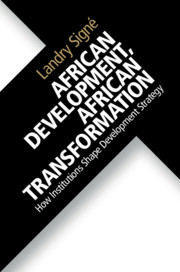
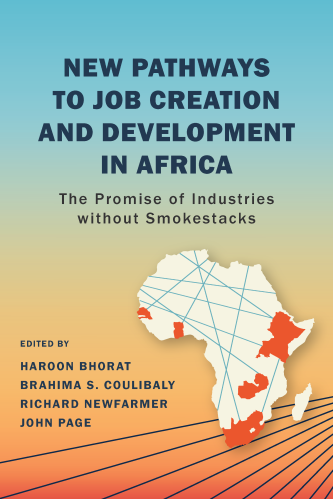
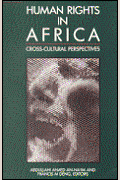
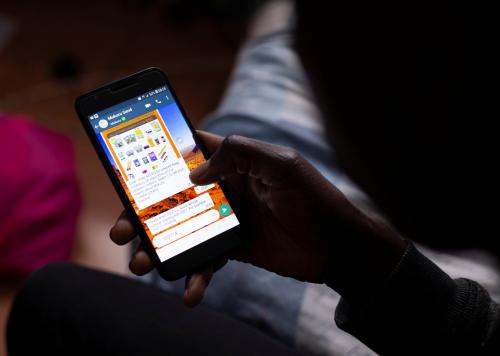
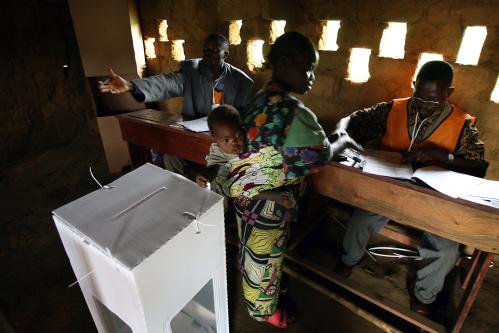
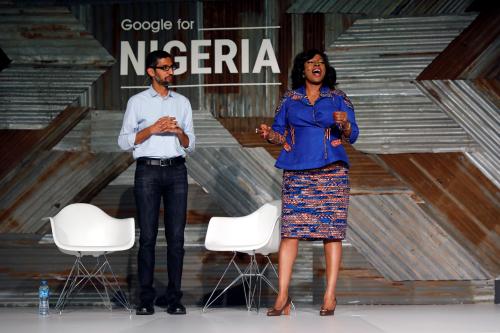


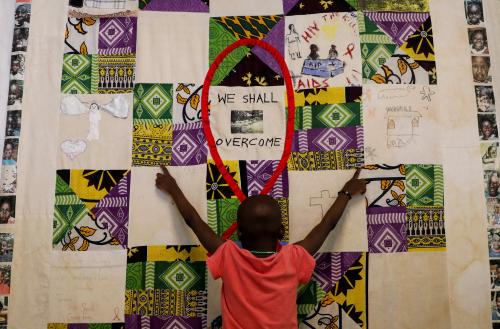

Commentary
Africa in the news: DRC election delay, Huawei-WorldRemit partnership, and new UNESCO World Heritage African landmarks
July 14, 2017